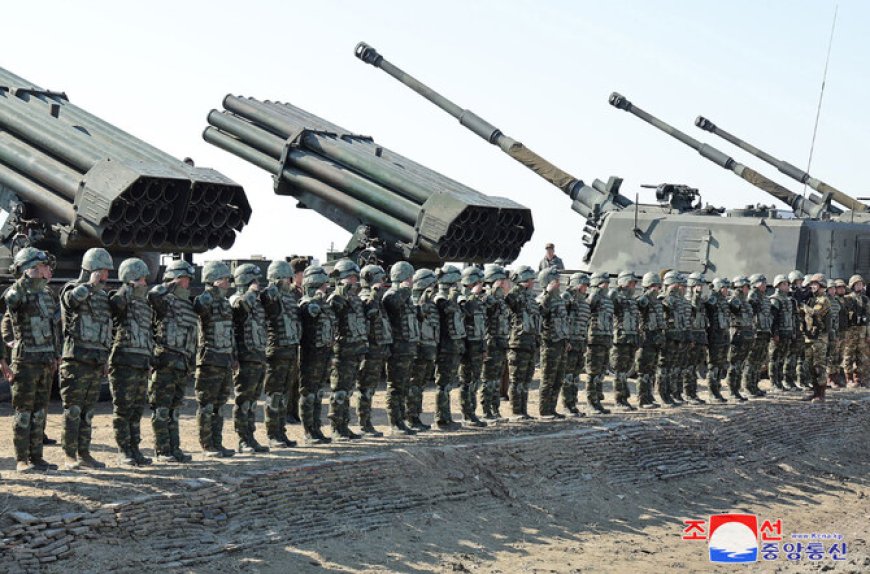Blinken asks China to stop North Korea in light of troop deployment warnings for Ukraine.
Amid growing worries about North Korean forces stationed in Russia ready to join the conflict against Ukraine, U.S. Secretary of State Antony Blinken advised China on Thursday on using its influence over North Korea.

Amid growing worries about North Korean forces stationed in Russia ready to join the conflict against Ukraine, U.S. Secretary of State Antony Blinken advised China on Thursday on using its influence over North Korea. Following North Korea's most recent intercontinental ballistic missile (ICBM) test, which officials claim shows the regime's increasing military capability, tensions are rising and this call to action is necessary.
Blinken disclosed during a press conference alongside Defense Secretary Lloyd Austin and their South Korean counterparts that roughly 10,000 North Korean troops are currently in Russia, with roughly 8,000 positioned in the Kursk region—an area where Ukrainian forces have made notable territorial gains since August. Blinken said, "Russia has been training these North Korean soldiers in various military operations," suggesting that they will shortly be sent to frontline fighting. "We expect that these troops will fight in the next days; we have not yet seen them in action."
Given the background of North Korean soldiers' recent military training in artillery and drone operations, the possibility of them joining the fight has caused concerns. Blinken underlined that should these troops engage in fighting, they would turn into official military targets for Ukrainian forces.
With South Korean military officials noting that the missile's flight time of 87 minutes indicates it could reach almost all of the United States, the U.S. and South Korea have denounced North Korea's missile launch as a "flagsrant violation" of UN Security Council resolutions. This most recent missile launch emphasizes Russia's continuous military cooperation with North Korea, which has generated major worries in Washington and among its allies.
Blinken highlighted to China's part in easing the crisis, implying that Beijing, a major ally of Moscow and Pyongyang, had an obligation to stop North Korea's aggressive behavior. "China should be quite concerned about what Russia might be doing to enhance North Korea's military capabilities, as it destabilizes the entire region," he said. Emphasizing the need for China to respond, recent conversations between U.S. officials and their counterparts in China were characterized as "robust."
Reacting to the ICBM launch, the U.S., along with other allies, has demanded a UN Security Council meeting to discuss the violations; scheduled to take place early next week Blinken observed, meantime, that despite mounting proof of cooperation, the Kremlin has not given any specifics about its possible aid to North Korea in developing missile technologies.
The scenario gets more complex with the continuous battle in Ukraine, where U.S. Defense Secretary Austin voiced hope in Ukraine's capacity to keep its territorial gains in Kursk despite significant deaths among Russian forces. "I do think they could hang onto the land, should they so want. They have choices, he said.
Western commentators worry that North Korea's involvement in the crisis could indicate a shift in its reliance on China, hence boosting relationships between American allies in Asia and Europe. Experts such as former U.S. national intelligence officer Sydney Seiler warn, nevertheless, that even if China might not back North Korea's military operations, it is doubtful that it will move decisively to stop them.













































